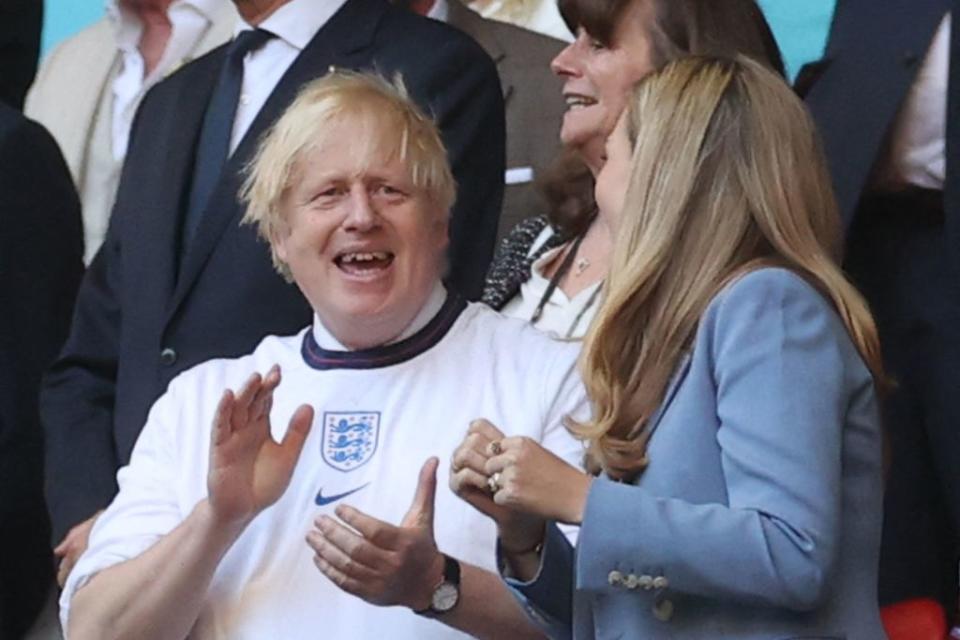Keep sport and politics separate? Impossible – so here’s what brands need to do


Last month, the International Olympic Committee warned countries hoping to host the 2036 Games of the “growing politicisation of sport”. With sport also now embroiled in the Israel-Gaza crisis, the age-old debate of whether sport should be political or not has reappeared.
The trouble with this debate is that not only is it complex but it’s also highly subjective. When it comes to politics and sport, we see what we want to see, and what we see tends to benefit us.
Therefore, what’s more interesting to explore is why people make these arguments. This is something that brands in particular should pay attention to because they are often told that sport is a neutral space, when in reality it’s anything but. Who, then, benefits from saying sport and politics don’t mix?
Firstly, the romantics. They like to see sport as being above politics. Romantics point to the power of sport to bring people together and overcome disputes. This philosophy dates all the way to the Ancient Olympics – despite the fact those Games were as fractious and political as sport today. For romantics, politics is a polluting force on the purity of sport.
Next there are the politicians. For people who make careers out of politics, they’re surprisingly keen to keep it out of sport. Emmanuel Macron was the latest world leader to declare that it’s a very bad idea to mix politics and sport.
You’ll notice that this belief didn’t stop him opening the recent Rugby World Cup, nor giving out medals at the final. It’s not politics in sport that politicians don’t like – they know it has power – it’s not being in control of that political power that they can’t stand.
Interestingly, the political right is much more likely to make this argument than the left. A recent study in the US showed that Republicans are far more likely to say politics should be kept out of sport than Democrats.
It’s why we also see right-wing politicians and commentators tell athletes to “stick to football” over issues such as Black Lives Matter, or in the case of Fox News anchor Laura Ingraham to Lebron James “shut up and dribble”. This makes sense; sport can be an agent of change and that scares those who benefit from the status quo.
What’s ironic is that those same commentators fail to realise that what they’re trying to project is already political. When military jets do fly-bys or we sing national anthems, these too are political statements. But because they reinforce the status quo, they don’t seem nearly as threatening.
We see the same self-serving contradictions in athletes too. Novak Djokovic was happy enough to wade in on Serbia-Kosovo tensions during this year’s French Open, whereas his Russian colleague Andrey Rublev, when faced with a blanket ban on competing, was hoping “that in sport they will show there is no politics”.
Why rights-holders like to argue that politics and sport don’t mix
There is one group however that hates politics in sport more than any other: rights-holders. Politics threatens everything for those who run and sell global sport. It limits where competitions can be held, who can compete and, crucially, how much people want to invest.
It’s why Gianni Infantino wrote to teams before the Qatar World Cup asking them not to bring sport “into every ideological and political battle”, and why Fifa created their own armbands of approved messages at the Women’s World Cup rather than let athletes express themselves.
It’s clear therefore that whether you see sport as political or not depends on how it benefits you. Brands need to understand this and make their own call. Official sponsors at Qatar were made to look out of step when others, like Brewdog and Hummel, made political statements. In those circumstances, the “sport and politics shouldn’t mix” argument doesn’t hold up to social scrutiny.
Brands also need to be consistent. You can’t be vocal when it’s easy to do so and hide when it’s not. For example, you can’t show support for Ukraine but stay silent on the Gaza crisis. This is not a moral argument, merely that once you have acted politically a subsequent inaction is also a form of political statement.
Exclusive @skynews: FIFA chiefs tell Qatar World Cup teams to focus on football & avoid morality lessons & dragging the game into political battles.
They say all fans welcome regardless of gender, sexual orientation or religion.https://t.co/TjQMY0yAk0pic.twitter.com/Z7u7TqEdoU— Rob Harris (@RobHarris) November 3, 2022
Over the next decade, nine of the 10 major World Cups and Olympics are in westernised liberal democracies. It will be easy for brands to use sport to take popular sociopolitical stances that help them feel progressive. When the Saudi Arabia World Cup comes around in 2034, however, those same brands can’t hide behind the claim that sport should be free of politics like many did in Qatar.
In reality, sport and politics have forever been entwined. Those who claim that they should be kept separate almost always have a reason for doing so. Brands need to make their own decisions. Use sport as a powerful way to make a statement by all means, but don’t become a bystander. In truth, the key question is not whether sport is political, but who controls the politics in sport.
Matt Readman is chief strategy officer at agency Dark Horses.

 Yahoo Finance
Yahoo Finance 